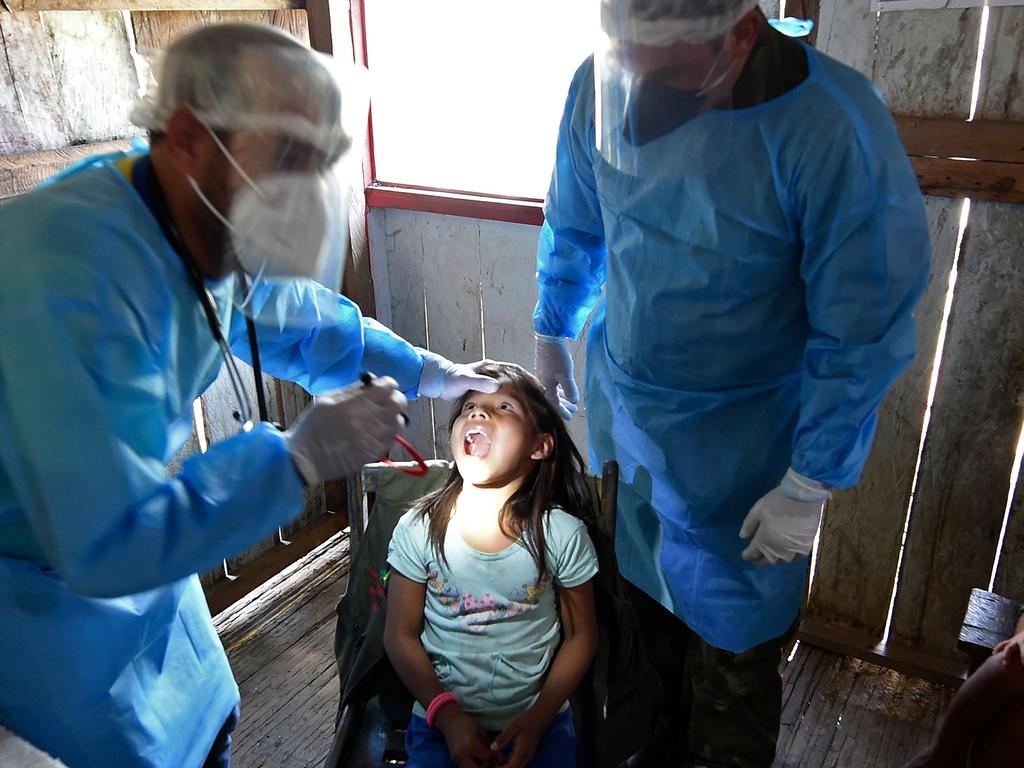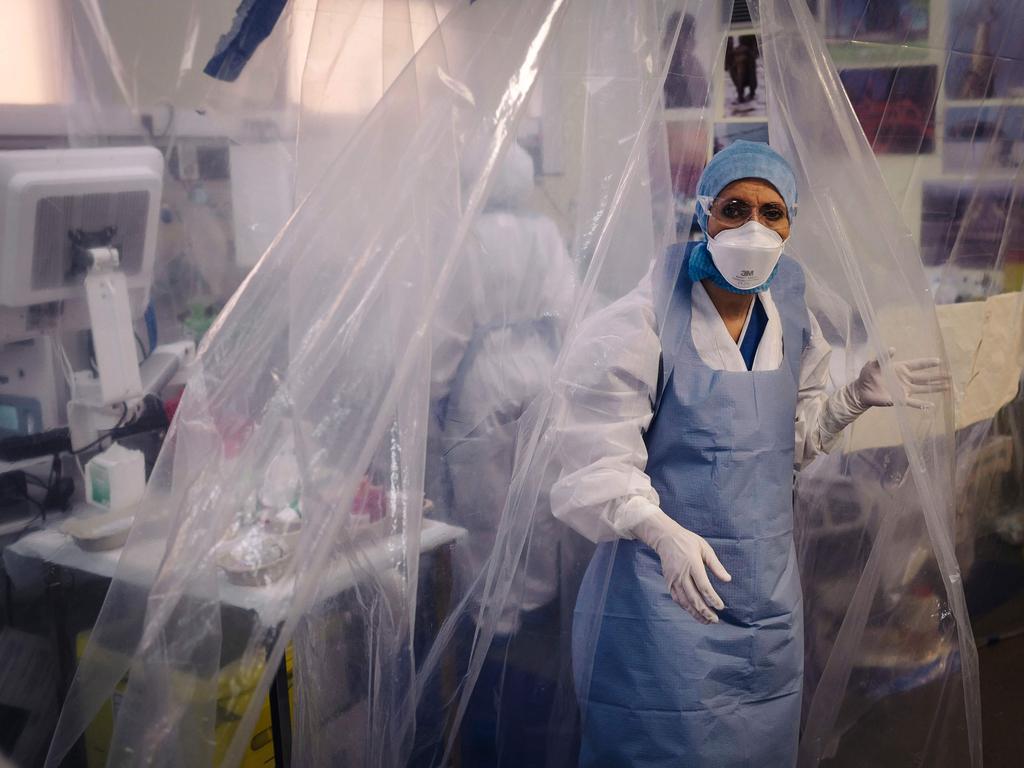Coronavirus: UK research reveals COVID-19 could cause Alzheimer’s, lung damage and psychological trauma
Worrying research has found that one third of patients who battle coronavirus and survive may suffer long-term effects for decades.

Recovered coronavirus patients could face long-term health damage and higher risk of other illnesses later in life, British research suggests.
The worrying study by the UK‘s National Health Service (NHS) has reported that one in three of those who catch coronavirus and recover may feel impacts beyond the term of the disease.
These include chronic fatigue, psychological trauma, lung damage and a higher risk of getting Alzheimer‘s later in life.
RELATED: Follow the latest coronavirus updates

UK GPs have been warned that up to half of those who were admitted to intensive care while battling coronavirus will have “persistent physical, cognitive and psychological impairments”.
Many who had survived COVID-19 now had anxiety had needed follow-up psychological care.
Dr Hilary Floyd, clinical director at the NHS Seacole Centre and head of the NHS’ new centre for COVID recovery, told UK newspaper The Telegraph the findings were concerning given how young some recovered patients were.
Some who had battled the virus and survived, experienced fatigue and breathlessness so debilitating that they can‘t do an activity for more than 10 minutes at a time, she said.
“These are people who were independent, they might be running their own business, going to the gym, swimming, active – now they are at the point they can’t get out of bed,” Dr Floyd said.
“We have a couple of patients in their 40s at the moment; we really didn’t expect that.
RELATED: Australians flee virus hot spots

“We were expecting them to be older, we have seen a lot in their 50s and 60s who are really struggling particularly because their expectation of getting back to normal is much greater.”
Imperial College London immunologist Professor Peter Openshaw told The Telegraph he had been “alarmed” by how many patients needed continued care after battling coronavirus.
He has predicted that 10 per cent of patients who had been hospitalised with the disease would have “quite persistent problems” such as ”chronic scarring pneumonia”.
It comes as Chinese research found that coronavirus patients who recover from the disease may still carry remnants of it deep in their lungs.
Dr Bian Xiuwu of the Army Medical University in Chongqing, southwest China – who led the research team – said their work “provided the first pathological evidence for residual virus in the lung for a patient (who tested negative) three consecutive times,” according to a report in the South China Morning Post.
Bian and his colleagues said there is an “urgent need to understand the pathogenesis of Sars-CoV-2 infection”.
The research was based on the autopsy of a woman who had coronavirus and received treatment, testing negative in three rounds of throat and nose samples.
But one day later the 78-year-old died after suffering cardiac arrest, with strains of coronavirus found deep in her lungs but no traces in her major organs like the heart, liver and skin.




